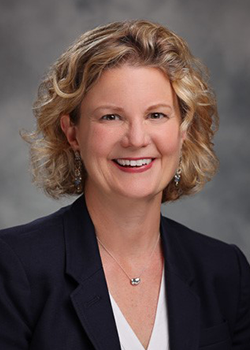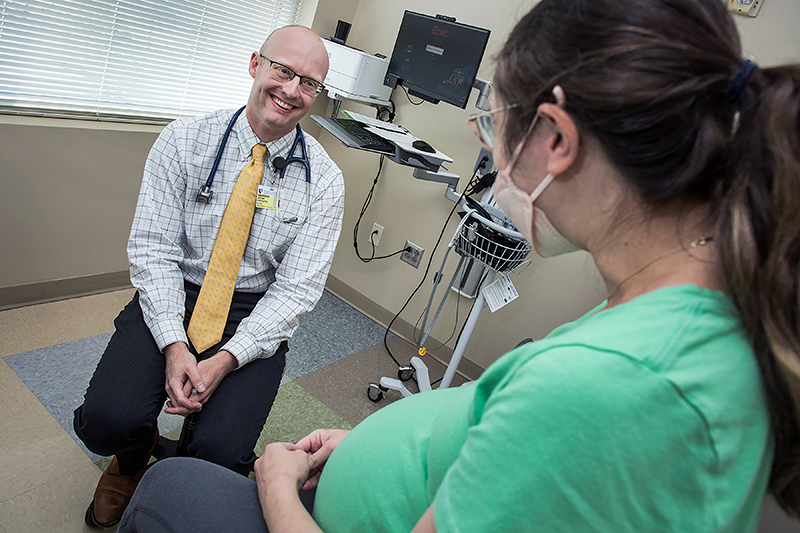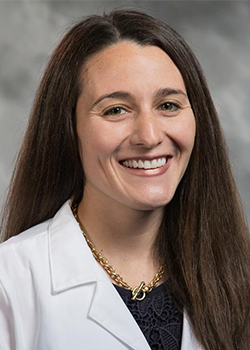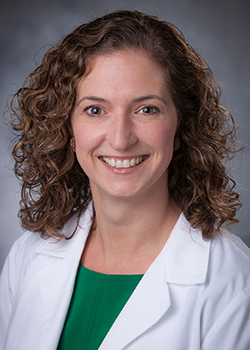
Making Pregnancy Safer: Inside the Effort to Reduce Maternal Mortality
In the United States, giving birth is more dangerous than in other wealthy nations. Much more dangerous.
“Despite being highly industrialized and having advanced medical care available, we have the highest rate of maternal mortality of any developed nation,” said Brenna Hughes, MD, professor of obstetrics and gynecology in the Division of Maternal-Fetal Medicine at Duke University School of Medicine. “We also see that the maternal mortality rate is multifold higher in Black women than white women.”
What’s worse, maternal rates for all racial and ethnic groups in the United States are rising. There have been ups and downs, with a significant uptick during the COVID-19 pandemic, but overall, “it’s been going up for decades,” according to Jerome “Jeff” Federspiel, MD, PhD, assistant professor of obstetrics and gynecology in the Division of Maternal-Fetal Medicine.
“At Duke, we have a large focus on trying to address maternal morbidity and mortality, and in particular, trying to focus on racial disparities,” said Hughes.
A multifaceted problem requires a multifaceted approach, and Duke Health physicians are tackling this one in the clinic, with system-wide protocols, and through research.
Standardized Protocols for All
Maternal mortality is defined as death during pregnancy or anytime within 42 days of having been pregnant. Federspiel said that mortality during delivery has actually decreased, but rates are rising for the time periods before and after, often due to cardiovascular conditions caused or worsened by pregnancy.

The reasons behind the increase are many, but one important factor is the prevalence of cardiovascular disease and cardiovascular risk factors among Americans – including women of child-bearing age.
“Women are becoming pregnant at older ages now,” said Cary Ward, MD, associate professor of medicine in the Division of Cardiology. “They are coming into pregnancy with obesity, diabetes and sometimes a history of cardiovascular disease.”
People with diabetes or high blood pressure are at higher risk of complications such as pre-eclampsia, a condition involving high blood pressure that can occur during pregnancy or soon after delivery. If diagnosed early, pre-eclampsia can be treated. Left untreated, it can lead to death.
One way to diagnose pre-eclampsia early is to give patients a blood pressure cuff to take home and have a nurse call regularly to check the numbers. The Division of Maternal-Fetal Medicine tracks the implementation of protocols such as this one using detailed dashboards, which include racial and ethnic data to ensure consistent treatment across all groups.
That’s important because Black women in the United States are about two-and-a-half times more likely to die during pregnancy, childbirth, or postpartum than white women.
“There are all kinds of potential reasons for that,” said Hughes, ticking off items like lack of access to health care and healthy food combined with generations of structural racism, all of which increases risk for cardiovascular disease, obesity, and diabetes.
But even Black women who have health insurance, economic resources, and no pre-existing conditions have higher maternal mortality rates than white women. That indicates bias in the delivery of care.
To help eliminate the potential for bias at Duke, Hughes said the quality team in the Maternal-Fetal Medicine division works to develop and implement standardized protocols for specific high-risk conditions. And they follow up if protocols are not applied, to identify – and address – barriers to their implementation.
“The goal,” she said, is to “apply the protocols to everyone with those high-risk conditions to minimize the impact of any implicit bias when providing care.”

The Duke Pregnancy Heart Center
Many heart-related problems can become more dangerous during pregnancy. In fact, cardiovascular complications are a leading cause of maternal mortality. “We have to remember that pregnancy is a huge stressor for the cardiovascular system,” Ward said. “Cardiac output goes up by 50 percent and then it has to reverse itself in 48 hours after delivery.”

To address this challenge, cardiologist Ward created the Duke Pregnancy Heart Center with obstetrician Federspiel and anesthesiologist Marie-Louise Meng, MD, assistant professor of anesthesiology, who has specialized expertise in caring for both obstetric and cardiology patients. Dana McComb, RN, serves as the care navigator for patients to help deliver multidisciplinary care as seamlessly as possible.
The Pregnancy Heart Center ensures safer pregnancies for women with a history of pre-existing cardiovascular disease or congenital heart disease, as well as those who develop cardiovascular problems during pregnancy.
The team runs a weekly multidisciplinary clinic to see patients who need specialized care to stay healthy and safe during pregnancy, delivery, and postpartum. During monthly meetings, team members develop care plans for each patient.
Patients include women with congenital heart defects or mechanical heart valves who may have been told in the past that they’d never be able to have children. The team also cares for women with serious pre-existing heart disease like heart failure or previous heart attacks. And many of the center’s patients have conditions that began in pregnancy, such as gestational diabetes or hypertension.
“We see the whole gamut,” Ward said. “There aren’t many other centers in the Southeast developing as much experience as we are.”
Ward hopes the center will grow to become a referral center for pregnant patients with complex cardiology issues. She and the team are also educating cardiology and obstetrics trainees and providers in the community about how to recognize and respond to cardiovascular issues before, during and after pregnancy.
Research to Improve Outcomes
In addition to providing clinical care and education, Duke physicians also participate in research to help make pregnancy safer in the United States.

Federspiel, for example, is working to help quantify the risks of various cardiovascular conditions, from coronary artery disease to a history of heart attacks. The data will make it easier for physicians to counsel patients with those conditions who are considering becoming pregnant.
He also does research on blood clots after childbirth, including when and how to treat them most effectively.
Duke is also one of the 14 primary clinical sites in the Maternal-Fetal Medicine Units (MFMU) Network, established by the National Institute of Child Health and Development. Hughes is the principal investigator of the MFMU site at Duke. The network carries out large-scale clinical trials to answer questions that can guide practice. One of the trials enrolling now is investigating whether treating sleep apnea during pregnancy decreases the development of pre-eclampsia.
Other MFMU trials underway aim to identify the best ways of preventing preterm birth.
Previous trials run by MFMU are already influencing practice, including one about the safest time to induce labor (39 weeks), and another about whether steroids given to mothers who go into labor between 34 and 36 weeks reduces respiratory symptoms in the babies (it does).
Taking a Wider View
Hughes, Federspiel, and Ward agree that better natal care and research are only part of the solution to high maternal mortality rates in the United States.

“Speaking from a public health background,” Federspiel said, “a lot about people’s health outcomes isn’t determined by what happens in childbirth and delivery.” He pointed to the “pernicious effects of racism throughout the life course” and said, “African American and Black patients arrive with a higher burden of comorbid conditions and that’s not a reflection of individual decisions, but a lifetime burden of exposure to racism.”
Better preventative care in childhood and young adulthood would help all racial and ethnic groups have safer pregnancies. For those without health insurance, which includes nearly 8 million women of reproductive age, preventative care can be out of reach.
“Universal health care would potentially decrease [maternal mortality] a lot,” Hughes said. “People have higher mortality in pregnancy when they come into pregnancy with worse underlying health disorders. There is a misconception that people who are pregnant are young and healthy, but many are not healthy. Really focusing on preventative health care as a nation would probably be the most important thing we could do.”
Mary-Russell Roberson is a freelance writer in Durham.
Photos by Chris Hildreth/Rooster Media.
Main Photo: Maternal-fetal specialist Jerome “Jeff” Federspiel, MD, PhD, and cardiologist Cary Ward, MD, at Duke University Health System.
